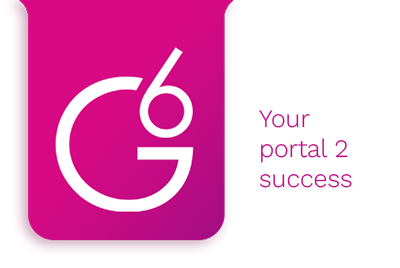Do you want to implement CRM technology into your business but don’t understand what it is, how it functions, or its features?
If so, you’re not alone! Many small business owners have heard of customer relationship management (CRM) but have no idea how to use it or its capabilities.
Hi, my name is AJ! I launched Small Business Bonfire after selling my company for multiple seven figures.
In the early days of business operations, sales were slow, I was wasting time and resources, and I didn’t have fantastic customer relationships. However, CRM changed everything!
If you’re ready to learn more about CRM solutions, keep reading!
Key Takeaways
CRM helps businesses organize customer information to improve relationships and close more deals.
The benefits of CRM software include better communication, marketing automation, and a better sales cycle.
CRM technology is designed to help small AND large businesses thrive.
Related Reading: Best Small Business CRM
SBB Featured Partners
What is CRM? Great question!
CRM software is a tool that helps businesses manage and improve their customer relationships, business processes, and more!
The primary function of CRM is to store and organize customer data, including:
Contact informationPurchase historyCommunication logsSocial media activityAnd more!
In addition to organizing information, CRM also provides analytical tools for in-depth insights into your customers’ behaviors and needs.
This helps small businesses make data-driven decisions that lead to profit.
Because of how powerful customer relationship management technology is, both small and complex businesses benefit from it!
The benefits of CRM software are endless!
Still, here are the primary advantages of implementing a CRM platform:
Centralized database across the company Sales teams understand their leads better Marketing campaigns are more targeted to the business’s ideal buyer Contact management is easier and more organized Companies can manage internal communications better The sales process is streamlined Automation features for data entry, sending emails, etc. Customer segmentation Accurate and in-depth sales reports Better revenue forecasting More accessible to scale the company’s sales process Gather and organize in-depth information on customer interactions The CRM system scales with your business Higher customer retention More efficient marketing and sales teams
These are only SOME of the benefits associated with CRM software!
As you can see, several reasons exist to invest in a CRM platform.
Small businesses need a CRM system primarily to streamline their operations and optimize customer interactions!
For instance, small businesses can efficiently manage and analyze customer data and interactions with CRM software.
As a result, it leads to improved relationships and higher customer retention rates!
Further, a CRM platform enables small businesses to do the following things:
Identify potential leadsFollow up on sales prospectsConduct targeted marketing campaignsSave time and resources
Ultimately, companies need CRM software if they’re serious about scaling their operations!
CRM software is crucial for marketers because it gives them a comprehensive view of their customers, including the following attributes:
PreferencesBehaviorsNeeds
This invaluable data allows marketers to create highly targeted and personalized campaigns, improving customer engagement and conversion rates.
Also, the analytical marketing tools within a CRM platform can measure the success of marketing efforts, providing insights that can drive future strategy and decision-making!
Lastly, CRM software is essential for marketing teams because of the marketing automation tools, saving time AND money.
A CRM system is critical for sales teams, enabling them to track and manage customer interactions in one central location.
Also, CRM software provides valuable insights into sales trends and customer data, allowing teams to make data-driven decisions and forecast sales accurately.
With a CRM’s automation features, teams can streamline their repetitive tasks, giving sales reps more time to focus on building and nurturing customer relationships.
Lastly, a CRM platform can dramatically improve customer service, leading to stronger customer loyalty and more closed deals!
The four primary CRM functions include the following:
Sales Marketing Customer service Project management
Here’s what you need to know about each function!
The CRM sales function allows businesses to manage and analyze customer interactions and data throughout the customer lifecycle.
These CRM tools aim to do the following things:
Improve customer relationshipsIncrease customer retentionDrive sales growth
CRM functions for marketing departments are incredibly powerful!
For instance, some of these tools include the following things:
Marketing automation software In-depth reports on marketing campaigns Streamlined marketing tasks Insight into customer information and trends Communication tools
CRM functions significantly enhance customer service by enabling teams to track and respond to customer inquiries or issues in a timely and personalized manner.
Also, these tools provide a holistic view of the customer’s history with the company, allowing for the following things:
More effective problem-solving Targeted serviceHigher customer satisfaction rates
CRM functions prove instrumental for project management teams by providing a unified platform to track, manage, and allocate resources effectively.
As a result, project managers ensure projects stay within time and budget constraints!
Also, by offering real-time data and comprehensive overviews of ongoing projects, CRM software enables the following things:
Better decision-makingImproved risk management Improved team collaboration
Here is a more in-depth look at some of the things customer relationship management technology can do!
Marketing automation software allows companies to do the following things:
Gather data on marketing campaigns See which messages attract their target audience Streamlining repetitive tasks Allow marketing reps to focus on more customer-centric tasks
Audience segmentation is dividing a company’s target market into distinct groups based on shared characteristics such as:
DemographicsBuying habitsInterestsBehaviors
With audience segmentation, companies create more tailored and effective marketing campaigns.
Contact, or lead scoring, is a CRM tool that assigns values to each lead based on various criteria, such as:
Their engagement with the company’s marketing efforts Their likelihood of making a purchase
Effective contact scoring allows teams to prioritize leads more likely to convert into customers!
Contact management involves maintaining and organizing a detailed record of a company’s interactions and communications with potential and existing customers.
Workflow management refers to the coordination, organization, and execution of a set sequence of tasks and procedures within a business.
With CRM software, businesses can keep multiple processes organized and running smoothly!
Pipeline management is a CRM tool that allows businesses to track and manage the progress of leads or deals through different sales process stages!
As a result, these features provide a clear overview of sales opportunities.
Deal management in CRM is the process that enables businesses to oversee and optimize the entire sales process.
Therefore, from initial customer interaction to closing the sale, teams ensure consistency, efficiency, and effectiveness in sales operations!
CRM software is a must-have if you need to improve team-wide communication.
With real-time updates and mobile access, CRM tools ensure everyone is on the same page.
Revenue forecasting is beneficial because it allows businesses to do the following things:
Make informed strategic decisionsPlan for future growth Anticipate and manage potential risks effectively
Documentation in CRM software refers to systematically recording all customer-related information and interactions.
As a result, teams can facilitate better decision-making and enhance transparency across all business operations!
The best customer relationship management software allows for third-party integrations.
With integrations, companies can use industry-specific software alongside their CRM system without missing a beat!
Some examples of CRM integrations include the following types of software:
Accounting Inventory Customer service tools Communication features Workflow automation tools
Customer service functions in CRM software empower businesses to do the following things:
Manage customer questions Handle customer complaints quickly Allow customer service representatives to have a complete profile of each client.
Also, these CRM tools offer comprehensive customer interaction histories, ticket tracking, and resolution features!
Therefore, CRM systems ensure personalized and timely responses, enhancing customer satisfaction and loyalty.
One feature to look for in a CRM system is mobility.
What’s a mobile CRM?
Mobile CRM software allows employees to access customer data and other tools from anywhere!
Therefore, employees in the office and those on the road can access real-time updates and work remotely.
Social media tools are part of every excellent CRM solution.
Social CRM allows you to do the following things:
Track important data related to social media platforms Schedule content Interact and respond to customers on social media in real-time Track social media ad campaigns
Social media is an excellent way to engage with existing customers and find new leads!
Artificial Intelligence (AI) within a CRM solution can do the following things:
Automate repetitive tasksProvide predictive analysis Enhance customer interaction by offering personalized recommendations and insights.Organize contact management tasks.
CRM artificial intelligence tools help businesses understand customer behavior better, improve sales forecasting, and deliver a more personalized customer experience.
Therefore, AI helps companies increase customer satisfaction and loyalty!
A customer database benefits a small business by centralizing all essential customer information!
As a result, organized customer data enables the following things to happen:
Personalized marketingImproved customer service Better, more informed decision-making processes
Lastly, I’ll show you the five-step process I and several other successful business owners have used to choose the right customer relationship management (CRM) system!
Before browsing the internet for CRM systems, you and your team must establish your CRM goals!
These goals must be specifically related to your CRM solution.
When creating goals, ask yourself the following questions:
What do we hope to get out of the CRM system?Which areas of our company could benefit most from CRM technology? How will we train employees to use the system?Which departments need CRM software most?
Another integral aspect when creating goals is to ensure they’re SMART, which means your objectives are:
SpecificMeasurable Attainable Relevant Time-Bound
You’re likelier to find success with your customer relationship management software when you start by setting goals!
The next step is reviewing the best customer relationship management (CRM) systems suited for small businesses.
Reviewing the best systems includes the following actions:
Researching various providers Comparing featuresEnsuring the pricing is within your budget Checking user reviews
The goal is to identify a CRM system that aligns with your business needs, budget, and goals!
Also, ensure you review CRM solutions that are specific to your industry.
So, if you run a real estate firm, look for technology with specific features and integrations that match your needs!
That way, you ensure the technology performs how you expect it to.
Step three is choosing a CRM system!
Choosing a CRM doesn’t mean you’ll be stuck with it forever (I’ll go over that in the next step).
Still, you should treat this step like you will implement it into your company in the long run.
At this point, you’ve done your research and narrowed down your options.
Now, it’s time to put that research to good use and select the software to help improve customer relationships!
In the test drive stage, you implement your chosen CRM solution on a trial basis to assess its real-world functionality and compatibility with your business!
Further, this phase allows your team to do the following things:
Familiarize themselves with the systemIdentify any potential issuesEvaluate the CRM’s effectiveness in achieving the previously set goals
The final step is integrating the software with your sales and marketing departments.
Integrating CRM systems takes longer than most small business owners assume.
Therefore, building a thorough CRM implementation plan is effective because it helps your team stay within time and budget constraints as they roll out the new software.
As you have seen, CRM systems are extremely powerful and capable of taking your business to the next level.
Features like marketing automation, social media tools, lead scoring, and in-depth reports help you understand your target audience better and cater to their needs!
What CRM functions will YOUR business use? Let us know in the comments section!
The post CRM Functions: Key Takeaways for Small Businesses appeared first on Small Business Bonfire.
—
Blog powered by G6
Disclaimer! A guest author has made this post. G6 has not checked the post. its content and attachments and under no circumstances will G6 be held responsible or liable in any way for any claims, damages, losses, expenses, costs or liabilities whatsoever (including, without limitation, any direct or indirect damages for loss of profits, business interruption or loss of information) resulting or arising directly or indirectly from your use of or inability to use this website or any websites linked to it, or from your reliance on the information and material on this website, even if the G6 has been advised of the possibility of such damages in advance.
For any inquiries, please contact [email protected]




